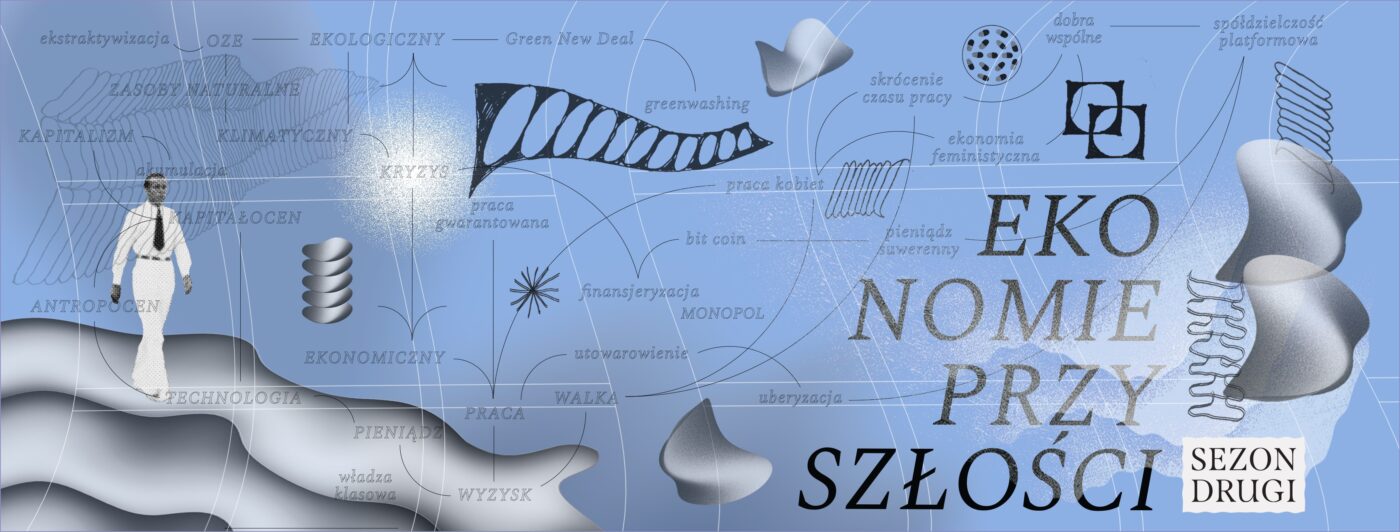Economics of the future
Season two
Kurator: Przemysław Wielgosz

The second season of the “Economics of the future” continues the series we launched in January 2020, and in April we modified it in response to new conditions dictated by the pandemic. The developing crisis confirmed the urgent need to look for other ways of thinking about the economy and other models of the economic practice. Frantic “return to normalcy,” aka “the new normal,” forced by governments and capital elites worldwide constitutes the attempt to jump-start global economy and return to the old ways as fast as possible. As if nothing changed. It certainly will not eliminate the causes of the crisis, and it is highly likely to contribute to its deepening. Nevertheless, we should note that bailout programmes introduced so far have visibly dented the edifice of the economic orthodoxy. Solutions such as tying support for businesses to the prohibition of lay offs, increasing unemployment benefits, or waving off debt limits indicate the directions of possible reforms. But it is still but a substitute for a radical change which we need. In order to implement this change, we require not only economic boldness and political courage, but also grass-roots pressure on decision-makers, forcing particular solutions which will form a programme of progressive change.
The experiences of the 2007–2015 crisis as well as the current one teach us that to really face increasing inequalities, financial instability, work precarisation, ecological degradation and results of climate destabilisation, it is not enough to simply reject the neoliberal heritage. We need to go beyond its conventional alternatives, beyond the borders of non-orthodox currents of economics, to redefine the notion itself as well as the fundamental stakes of economic sciences.
Let us hope that the “Economics of the future” will become a useful brick in building such a programme. In the new series which will be initiated with a meeting on 22 September, we will try to draft several possible roads, tools, and strategies for the implementation of increasingly necessary transformations. We will discuss the economics of the commons, political economics of the Anthropocene, feminist economics, and finally the condition of the globalised capitalism and its possible alternatives. Our topics will include the politics of commonality, gratuitousness, post-growth, valorisation of reproductive work, and overcoming global polarisation.
The meetings will be held in the new, hybrid formula that will combine a small live discussion in our main venue at 34/50 Marszałkowska Street with a live streaming on YouTube and Facebook, and the possibility of remote participation.

